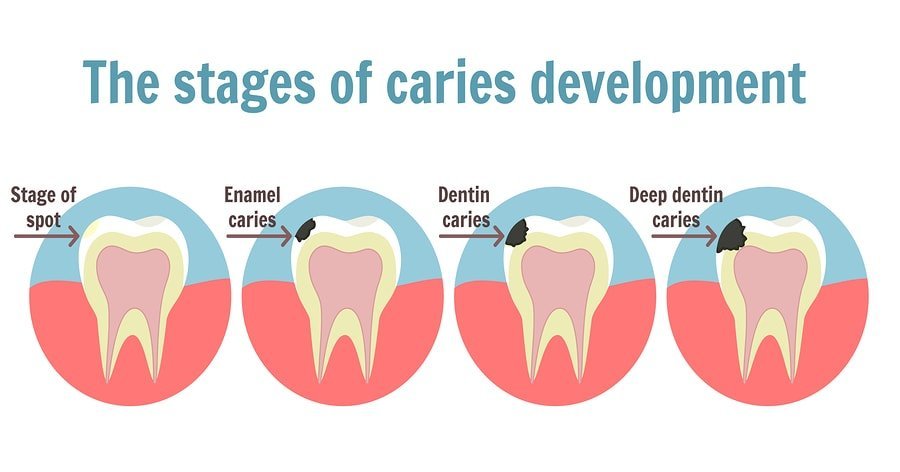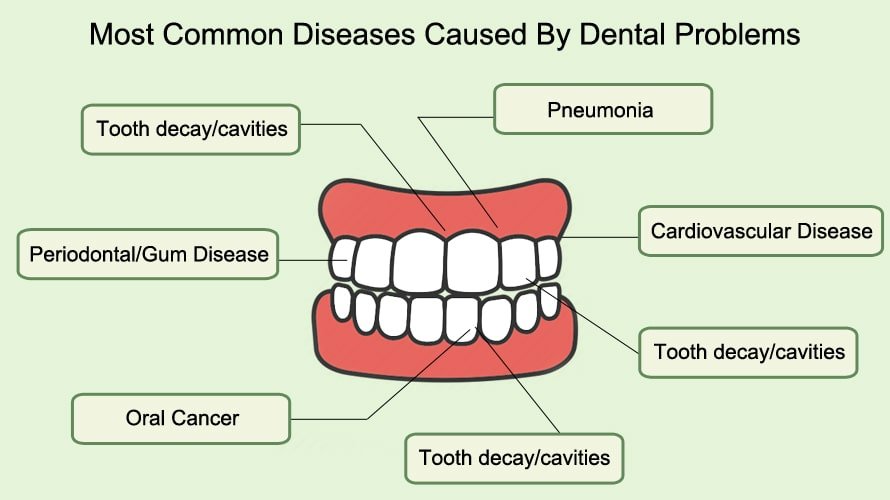How to keep your teeth healthy and strong for life

To keep our teeth healthy and strong as we grow older, we need to adopt some habits early on.
A smile is a source of life. A source of love, affection, calm, reward, but also a source of reassurance, encouragement, patience and courage for a difficult time.
It is formed on our face with the participation of up to 12 muscles, from the very first months of our life, before the first teeth are even visible.
Researchers even note that a mouth at rest almost tends to smile, thus requiring little effort to achieve a wide smile.
And, yes, there are faces with features capable of camouflaging the fact that, when they smile, they are probably missing one or more teeth, or those that are present are not well-formed and beautiful.
But teeth are not only one of the elements of a smile. They are part of our mouth, a major organ of the body with important functions. The mouth acts as the “first gateway” of entry to a variety of stimuli. Just observe a baby from its very first moments of life and you will have no difficulty confirming this.
We therefore need our teeth healthy and – as far as possible – intact. In this article we are going to explore the many threats to our teeth, hence our smile and how to keep your teeth healthy and strong for life.
The threats to our teeth
The teeth receive many constant “threats” through the years – from the very first moment the first of our “baby”, new teeth appear in the mouth, usually at the age of 6-7 months.
The main threats are the sugars present in food, which nourish a plethora of bacteria that in turn produce dangerous products capable of altering the hard substances of the teeth.
Caries is a tooth disease that even threatens the prognosis of teeth if not diagnosed and treated in time.

Gingivitis and periodontitis are diseases of the gums due to the persistence of food on the surfaces between the teeth and gums and the organization of the microbial membrane into a structure full of bacteria with dangerous by-products that trigger the inflammation process.
Various bad habits, such as smoking, substance and alcohol abuse, or even daily habits, such as chewing our nails or other hard objects, finger sucking in children, etc., also pose a threat to the teeth. They may seem innocent to some, but they turn out to be very damaging.
The threats to our dental health can come from different directions and are naturally modified according to our age stage.
To deal with them, we need to follow basic and easy steps, which we are advised to stick to consistently from early on and throughout our lives.

How to take care of teeth (from infancy)
We could describe two directions: the first and most important one is about keeping our teeth and mouth clean, while the second one is about daily habits that we should take care of.
From childhood, with the help of our parents, we need to clean our teeth effectively and consistently. With simple steps, which it is advisable to have a dentist show us, and with the knowledge that ‘a clean tooth is impossible to get sick’, as the Czech Professor Jiri Sedelmayer, who devoted his entire dental career to prevention and oral hygiene, emphasized.
We start oral hygiene from the very first tooth appearing in the baby’s mouth, initially by using a properly designed, soft toothbrush. As the child grows, from the school years onwards and depending on his/her skills, we introduce the use of interdental brushes.
From the emergence of our permanent teeth, around 6-7 years of age and throughout our adult life, the use of interdental brushes primarily and flossing secondarily is of utmost importance to keep every area and between the teeth clean.
At the same time, our daily habits and lifestyle can enhance and preserve our oral health.
In children, finger sucking is best avoided altogether and it is important to stop using pacifiers as early as possible, ideally from the age of 18 months, as they affect proper jaw development and speech.
What else affects the health of the teeth
You don’t have to wonder how to keep your teeth healthy and strong for life anymore, if you memorize the following seven tips
Vitamins & Minerals
It is important that our diet includes all sources of nutrients and vitamins, which will help our defense system to fight any inflammation, but also support the proper functioning of our teeth, gums and the whole oral cavity with proper blood supply and microcirculation.
Hydration
Also, proper hydration of the body prevents us from a number of undesirable conditions for the teeth, such as dry mouth, mouth sores (cavities, etc.) and tooth decay.
Sweets & Sugars
With regard to the consumption of sweets and sugars, let us not forget that it is mainly the frequency of consumption that is important, as a constantly low pH in the mouth and the constant presence of sugars that feed the microbes of the oral cavity are ideal conditions for the development of caries.
Particularly dangerous are sticky foods that do not “wash off” easily from the surface of the teeth, such as candies.
Acidic Foods
Acids in our diet need to be taken with care in the frequency of their intake, as they can cause significant erosion of the teeth and wear of the enamel. It is advisable to brush after an hour after taking them (fruit juices, lemonades, very acidic salads, etc.).
Smoking & Alcohol
Smoking and drinking alcohol are known to threaten our oral health and our overall health in general, so it is advisable to keep them to a minimum.
Cut down on smoking and minimize the use of alcohol consumption if you want your teeth to stay healthy and strong as long as possible.
Nail biting
Tobacco chewing and habits such as nail biting cause significant damage to the hard substances in the teeth and should be avoided.
Excessive use of medicines
A phenomenon of our times, polypharmacy, in addition to a number of complications in our general health, particularly affects the condition of our mouth, often associated with dry mouth, disturbances in blood supply or healing, etc.
We need prudence in how much and what kind of medicine we take, always with the proper guidance of doctors and with trust in nature and in what it wisely creates and repairs.

Poor Lifestyle Habits
We should add that at various stages of our lives – age and otherwise – even greater care is needed in the prevention of our oral health. Hormonal fluctuations during adolescence or during pregnancy for women are a predisposition for more rapid progression of inflammation in the gums or periodontal disease, while in times of increased stress, proper healing in oral lesions is likely to be disrupted.
Stress, hectic lifestyles and poor sleep quality are also associated with dysfunction of the temporomandibular joint and head muscles, possibly resulting in the development of malfunctions often detrimental to the teeth, jaws and face.
Bottom Line – The importance of prevention
It would be great if dental treatment could at some point be limited to standard re-examination only, every few months, depending on the individual case and certainly with a maximum interval of six months, according to the guidelines of the literature studies.
In this way, the dentist will be able to take care of the details in cleaning the teeth, to identify in good time anything that threatens our oral health, so that we can finally reach the point where prevention beats the need for treatment.\
